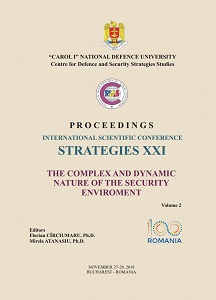
FAILED STATES – CONFLICT AND INSTABILITY – GENERATING ACTORS IN THE REGIONAL SECURITY ENVIRONMENT
The role of states in shaping the security environment, regional or global, is essential and defining. Wherever fragile societies, ethnic and religious rifts or an eroded sovereignty concept occur, conflict-generating processes affect the whole region.States with such problems often follow an easy-to-understand path: they are becoming weaker, fail to operate at optimal institutional parameters, and then collapse.In these cases, the role of the international community through international organizations is crucial. They need to find short-term solutions towards the rapid humanitarian recovery, but also to identify those mechanisms that erode the state at the institutional level in order to be able to correct them.
More...


